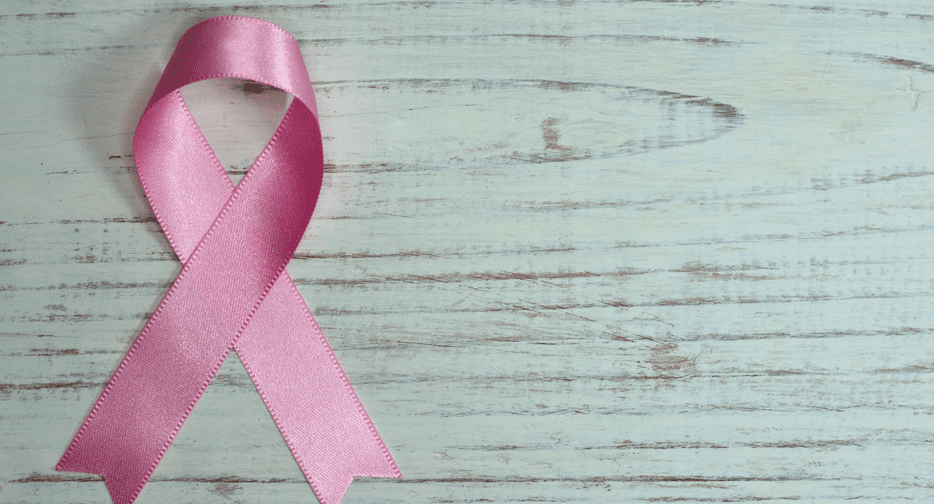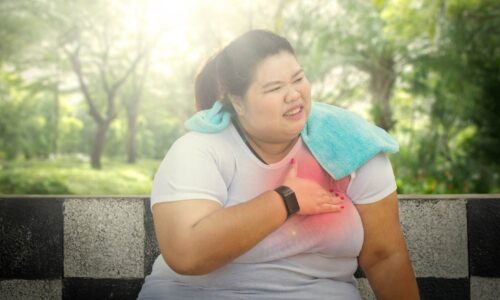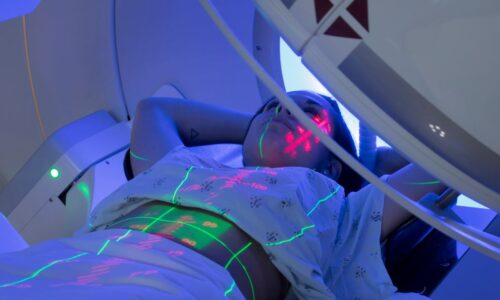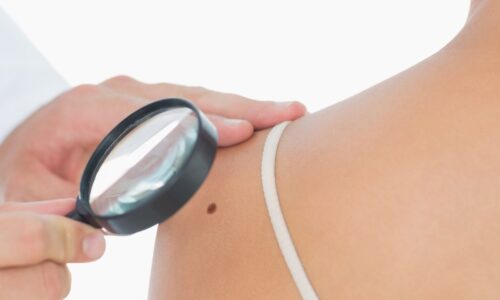5 Things That Can Help Mitigate Breast Cancer | Health Channel
 Dr. Mendez starts off by listing some things you can do to help mitigate the risk of breast cancer. Dr. Mendez explains that maintaining alcohol consumption at a moderate level is key, but, “there’s some data to suggest that red wine contains phenolic acids which can be protective against breast cancer.” So, drinking red wine can be a method of breast cancer prevention, in moderation of course.
Dr. Mendez starts off by listing some things you can do to help mitigate the risk of breast cancer. Dr. Mendez explains that maintaining alcohol consumption at a moderate level is key, but, “there’s some data to suggest that red wine contains phenolic acids which can be protective against breast cancer.” So, drinking red wine can be a method of breast cancer prevention, in moderation of course.
Smoking puts you at risk for more than just breast cancer, Dr. Mendez warns. She says that the cancer that kills the most women is lung cancer, “and those numbers have been increasing over time because of smoking habits in women.” So, certainly refrain from smoking.
Weight can also be a risk factor for breast cancer. Dr. Mendez explains that there is a correlation between obesity and breast cancer. Higher fat depositions are linked to higher levels of estrogen, and that can put you at risk for breast cancer. So, maintaining a healthy weight is essential. There is also data to suggest that leading an active lifestyle, in which you are consistently getting your heart rate up, can lower your risk of cancer. “It’s not a matter of just going to the gym, but being smart, taking the stairs, walking instead of just taking the stroller,” Dr. Mendez says.
Breastfeeding is also thought to have some sort of protective quality against breast cancer, but Dr. Mendez says that is not always necessarily the case. She states that it can prevent, “some of the estrogen-centered breast cancers…but it’s not a hundred percent absolute. There’s a lot of women who breastfeed who still develop breast cancer.” Breastfeeding may be helpful as a preventative measure, but there is no guarantee.
Dr. Mendez mentions that it is also important to be aware of certain pollutants and chemicals that you may be exposed to that are known to have a relationship with breast cancer. Insecticides and pollutants in the air are linked to a larger incidence of breast cancer. Dr. Mendez also talks about the relationship between breast cancer and plastics. “There’s a lot of talk about water bottles, plastic, and cellular phones…there’s not a hundred percent link with breast cancer but we need to be aware of it,” Dr. Mendez warns. Though, contrary to many women’s fears, Dr. Mendez assures that modern oral contraceptives do not put you at risk for breast cancer. “In the past, like the 80s and 90s, they had formulations that were very different from what we use now. We thought that there was a link, but not at this point,” Dr. Mendez says.
Dr. Mendez moves on to discuss the common misconceptions surrounding breast cancer and its causes. The first one Dr. Mendez talks about is about deodorant. The interviewer asks, can deodorants cause breast cancer? Dr. Mendez says that it cannot and you should wear whichever deodorant you want. Some people believe that the aluminum content in deodorants can cause cancer, but Dr. Mendez assures that there is no scientific research that supports this claim.
Another commonly held misconception is that the smaller your breasts are, the less likely you are to get breast cancer. Dr. Mendez says that your breast size has nothing to do with your risk of getting cancer.
Underwire bras are also incorrectly thought to be linked to breast cancer. Dr. Mendez admits though, they are the culprit behind a lot of breast pain. Dr. Mendez explains that the area where the wire ends presses very tightly against the breast, and can cause soreness. “One of the most common procedures that I do in my clinic when women come in with breast pain is…I teach them to make a little cut and remove the wire, end of story,” Dr. Mendez says.
Definitely one of the most recurring misconceptions in our culture, is the idea that consuming soy increases your risk of cancer. This is certainly not the case. In fact, recent research points to the opposite, that soy may even help prevent breast cancer, especially in young women. The interviewer of Health Insiders shows a video explaining why. In it, Mayo Clinic Dietitian, Catherine Zaratsky says that soy contains isoflavones, which are plant estrogens. Unlike human estrogens, which in high levels can increase the risk of breast cancer, plant estrogens do not. The American Institute for Cancer Research recommends for people to have one to two servings of soy a day. “Enjoy that cup of soy-rich soup, in moderation. Soy is part of a balanced and nutritious diet,” Catherine reassures.
Next, Dr. Mendez talks about sugar. Sugar by itself does not put you at higher risk for cancer, but the health risks that can come from overconsumption of sugar definitely can. As previously mentioned, being overweight and having higher estrogen levels are risk factors. “There’s a lot of fads out there and special diets and a lot of people talk about it, but just eat in moderation,” Dr. Mendez advises.
The last risk factor Dr. Mendez goes over is hormone replacement therapy. A lot of women want to do HRT but they are scared of getting breast cancer, Dr. Mendez says that they have good reason to be. “The surprising thing is how many women are on it, and for so many years, despite all the new information. So I find myself having to ask women to stop them,” Dr. Mendez explains. When she asks them why these women are on HRT, they say that their doctor recommended it. Dr. Mendez says that she understands why women want to do HRT, “Who doesn’t like to feel younger, have better skin, etc.” Though, chronic use is associated with an increased risk of breast cancer.
To watch the full segment of Dr. Mendez talking about the different risk factors and common misconceptions about breast cancer, click here: https://youtu.be/e7kICScf9fQ








